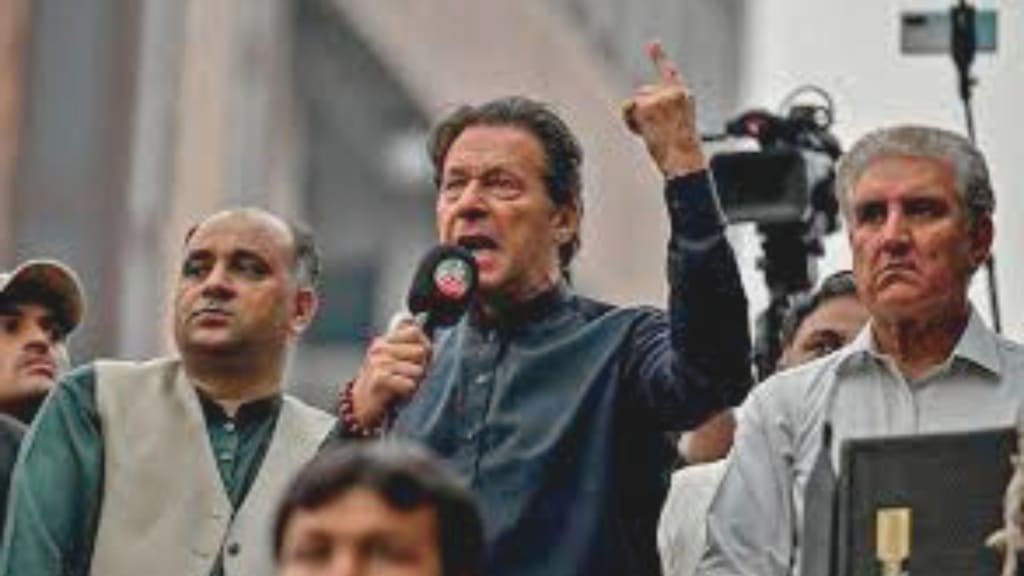Former Pakistani Prime Minister Imran Khan has called for early elections
This unexpected move has sent ripples through the political landscape, raising questions and speculation about the underlying motives and potential implications.

Former Pakistani Prime Minister Imran Khan has called for early elections
Introduction
In a recent development that has sparked widespread political discussions, former Pakistani Prime Minister Imran Khan has called for early elections in the country. This unexpected move has sent ripples through the political landscape, raising questions and speculation about the underlying motives and potential implications. In this article, we delve into the details surrounding Imran Khan's call for early elections, analyzing the factors at play and examining the potential outcomes for Pakistan's political future.
Imran Khan's Announcement
Imran Khan, who served as the Prime Minister of Pakistan from 2018 to 2023, surprised the nation with his announcement advocating for early elections. Speaking at a political rally, Khan expressed his belief that holding elections sooner rather than later would provide an opportunity for the Pakistani people to exercise their democratic rights and have their voices heard. He emphasized the importance of allowing the citizens to actively participate in shaping the country's future and expressed his confidence in the support of the people.
Motives Behind the Call for Early Elections
While Imran Khan's call for early elections has stirred considerable debate, there are several potential motives that could have influenced his decision. One possibility is that Khan seeks to consolidate his political power and secure a renewed mandate from the electorate. By going to the polls earlier than scheduled, he may hope to capitalize on his popularity and address any challenges to his leadership within his political party.
Another motive could be rooted in the desire to capitalize on favorable circumstances. Khan may believe that the current political climate, economic conditions, or public sentiment are advantageous for his party, making it an opportune time to contest elections. By seeking an early mandate, Khan may aim to implement his policy agenda more effectively and avoid potential obstacles that could emerge in the future.
Potential Implications
The call for early elections by a former prime minister carries significant implications for Pakistan's political landscape. Firstly, it injects a fresh wave of energy and excitement into the political sphere, as parties gear up for an accelerated election campaign. The sudden nature of the announcement has caught many political rivals off guard, forcing them to swiftly reassess their strategies and mobilize their supporters.
Furthermore, early elections have the potential to disrupt the existing political equilibrium and realign party dynamics. Opposition parties may find themselves facing additional challenges as they scramble to adapt to the accelerated timeline. On the other hand, the ruling party may capitalize on the element of surprise to solidify its position and gain a strategic advantage.
Public Reaction and Anticipated Political Fallout
Imran Khan's call for early elections has sparked mixed reactions among the general public and political commentators. Supporters of the former prime minister have lauded the move as a testament to Khan's commitment to democratic principles and his willingness to seek a fresh mandate. They believe that early elections will provide an opportunity for the people to reaffirm their support for Khan's leadership and endorse his policies.
However, critics of the decision argue that early elections may not necessarily be in the best interest of the nation. They point to the potential disruption and increased costs associated with organizing an unplanned election, diverting resources and attention away from pressing national issues. Additionally, some skeptics question the timing of the announcement, suspecting ulterior motives or attempts to exploit favorable conditions for political gain.
Roadmap for Early Elections
As the nation braces for early elections, several crucial steps need to be undertaken to ensure a smooth and transparent electoral process. The Election Commission of Pakistan will play a pivotal role in coordinating the logistics, including voter registration, candidate nominations, and the execution of the election itself. It will be imperative to maintain impartiality and provide a level playing field for all participating political parties.
Political parties, on their part, will need to mobilize their support base, formulate compelling manifestos, and strategize campaign efforts to resonate with the electorate. The pre-election period will witness intensified political activity, as candidates vie for attention and attempt to sway public opinion through rallies, debates, and media outreach.
Conclusion
Imran Khan's call for early elections in Pakistan has added a new layer of complexity to the country's political landscape. Whether motivated by a desire to solidify his position, capitalize on favorable circumstances, or promote democratic ideals, the implications of this announcement are far-reaching. As the nation gears up for an accelerated election campaign, all eyes will be on the political parties, their strategies, and the eventual outcomes that will shape Pakistan's future.





Comments
There are no comments for this story
Be the first to respond and start the conversation.